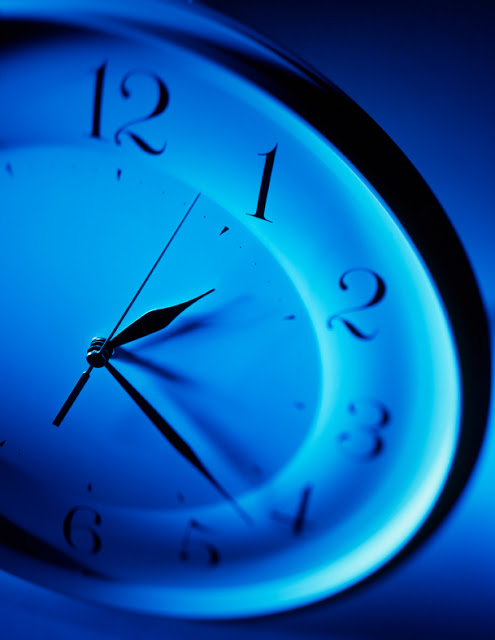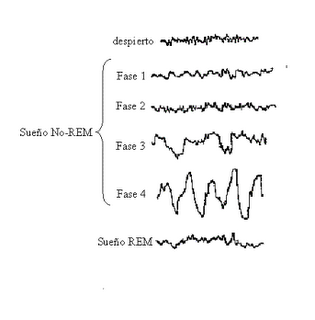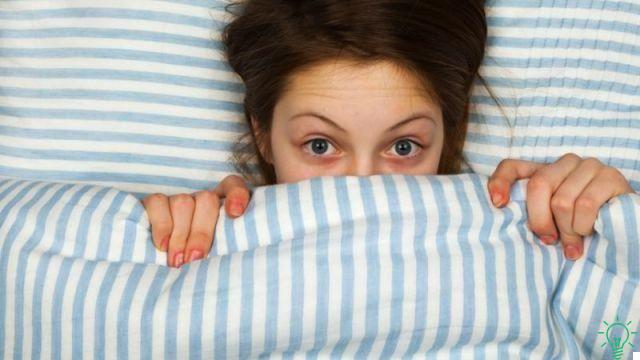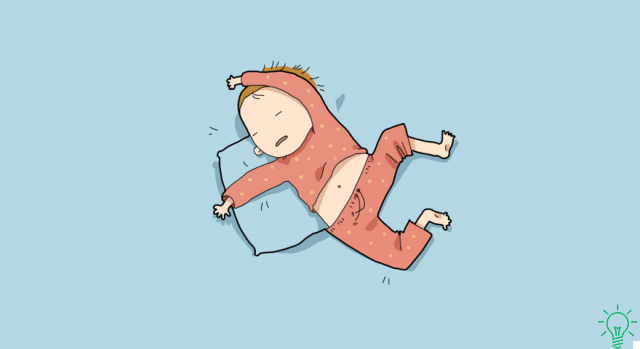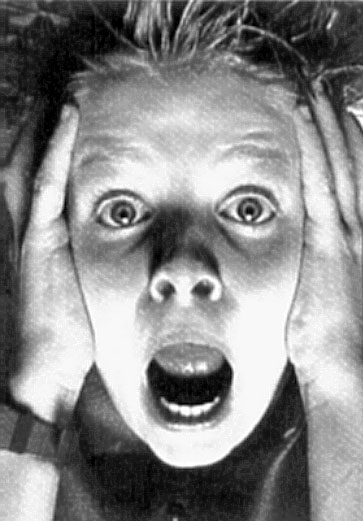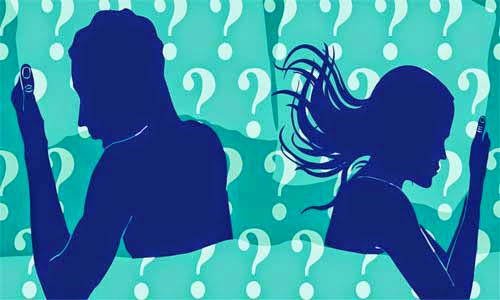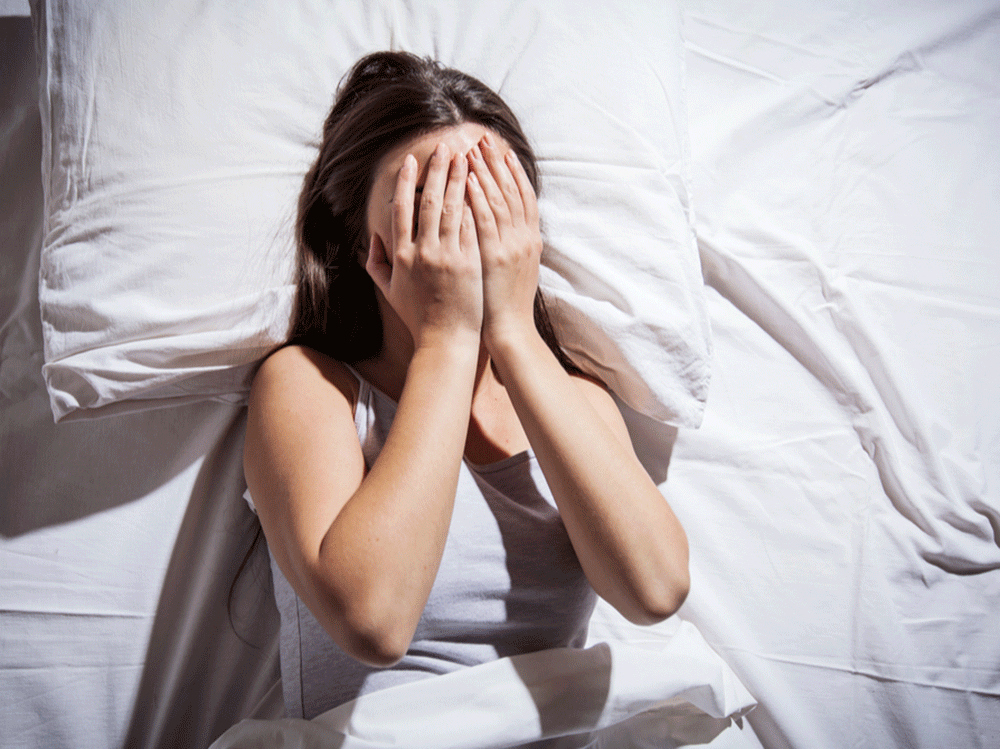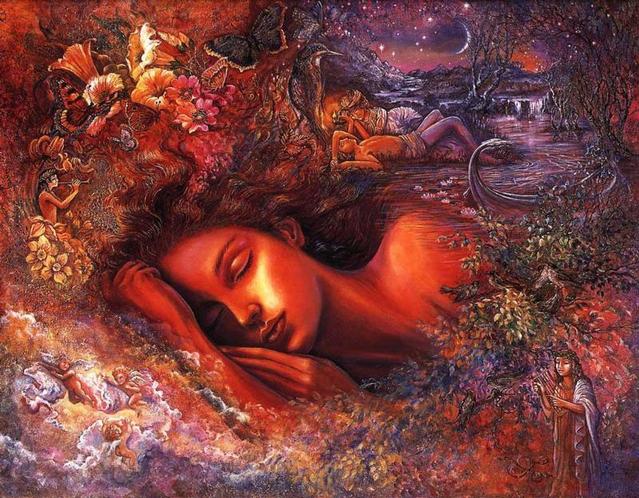
Insomnia and emotions have a very close connection. In fact, it's likely that on more than one occasion you have woken up grumpy, irritable, or listless after a night of poor sleep and no rest.
On average, we spend 25 years of our life sleeping. It is a long time. This indicates the enormous importance of sleep, both physiologically and psychologically. Sleeping less than 6 hours a day can have detrimental effects in the short and long term, both for our health and for our emotional balance.
Lack of sleep reduces positive emotions
Sleeping little and badly affects our emotional state. This was demonstrated by researchers from the Department of Psychology of the Norwegian University of Science and Technology, who analyzed the sleep patterns of 59 people and their reactions the next day.
These people first slept normally in their homes to undergo a series of tests the following morning. So for three days, they had to go to bed two hours later and get up an hour earlier than usual. In the morning they performed accuracy and responsiveness tests, as well as tests to assess the positive and negative emotions they were experiencing.
Researchers have found that when we don't sleep long enough, we respond much more quickly to stimuli, but we are less alert and make many more mistakes. In practice, we react faster to compensate for the lack of concentration. As a result, we make more mistakes.
Our emotional state also suffers. "Positive feelings worsened after a single night of reduced sleep and decreased even more after three nights," the psychologists write. Therefore, they conclude that lack of sleep can turn into a rapidly worsening emotional problem.
After a bad night's sleep we lose neutrality
Not getting enough sleep affects not only our mood, but also the way our brains process the stimuli we face during the day, according to another study conducted at Tel Aviv University.
In this case, the participants went through a series of tests after sleeping normally and after a sleepless night while the researchers measured their brain activity. One of the tests consisted of asking people to indicate the direction in which a yellow dot was moving on different images that had a positive, negative or neutral emotional value.
Interestingly, those who had slept well were able to identify the direction of the dot on neutral images faster and more accurately. Conversely, those who had not slept well had a hard time identifying the point on all images, which means that they were also reacting to the neutral ones.
Having a sleepless night distracted people, activating their amygdala, the emotional control center in the brain that detects the most relevant signals in the environment, so they took neutral stimuli as threatening.
“These results reveal that, without sleep, the simple recognition of what is emotional and what is a neutral event is altered. We can experience similar emotional stimuli from all ongoing events, even neutral ones, and lose our ability to process more or less important information. This can lead to distorted cognitive processing and poor judgment, as well as anxiety, ”the researchers conclude. This would explain our irritability when we slept badly.
The sleepless brain
Apparently, when we don't rest enough, cognitive control of emotions is affected, which is essential for responding adaptively to the environment. In practice, the areas of the prefrontal cortex, which would be in charge of regulating the emotional activation that occurs in the limbic system, stop diligently exercising their control function, therefore emotional hyperreactivity is produced. This would explain the profound connection between insomnia and emotions.
Another study conducted at the University of Arizona's Laboratory of Social, Cognitive and Affective Neuroscience may offer the answer to that "disconnection" - or at least in part. These neuroscientists found that after a sleepless night, people with a more positive mood were those who had the most compact white matter.
White matter is made up of long, isolated fibers that connect brain cells to gray matter. White matter would then be what allows our brains to function efficiently and quickly, facilitating the speed and connectivity between neurons.
When this connection fails or becomes slower, the connections between different areas of the brain are compromised, so that we cannot exercise self-control as effectively and the emotional brain is free to do what it wants.
Women suffer more from the side effects of lack of sleep
Interestingly, the link between insomnia and emotions is more intense in women. A study conducted at South Australia University's Sleep Research Center revealed that after 36 hours without sleep we are experiencing a gradual impact on our mood.
Lack of sleep generates depression, anger, confusion and anxiety, accompanied by less energy and fatigue. However, women were more vulnerable to those changes, showing a more depressed mood and increased anxiety after sleep deprivation.
Of course, sleeping is a highly individual process. There are people who need eight hours of sleep every night and others less. The most important thing is that everyone finds their own balance. How many hours of sleep you need you can tell from your mood the next day. If you are in a good mood and alert when you get up, it means that your sleep habits are beneficial. If not, you should rethink your routine, for reasons of physical health and emotional balance.







